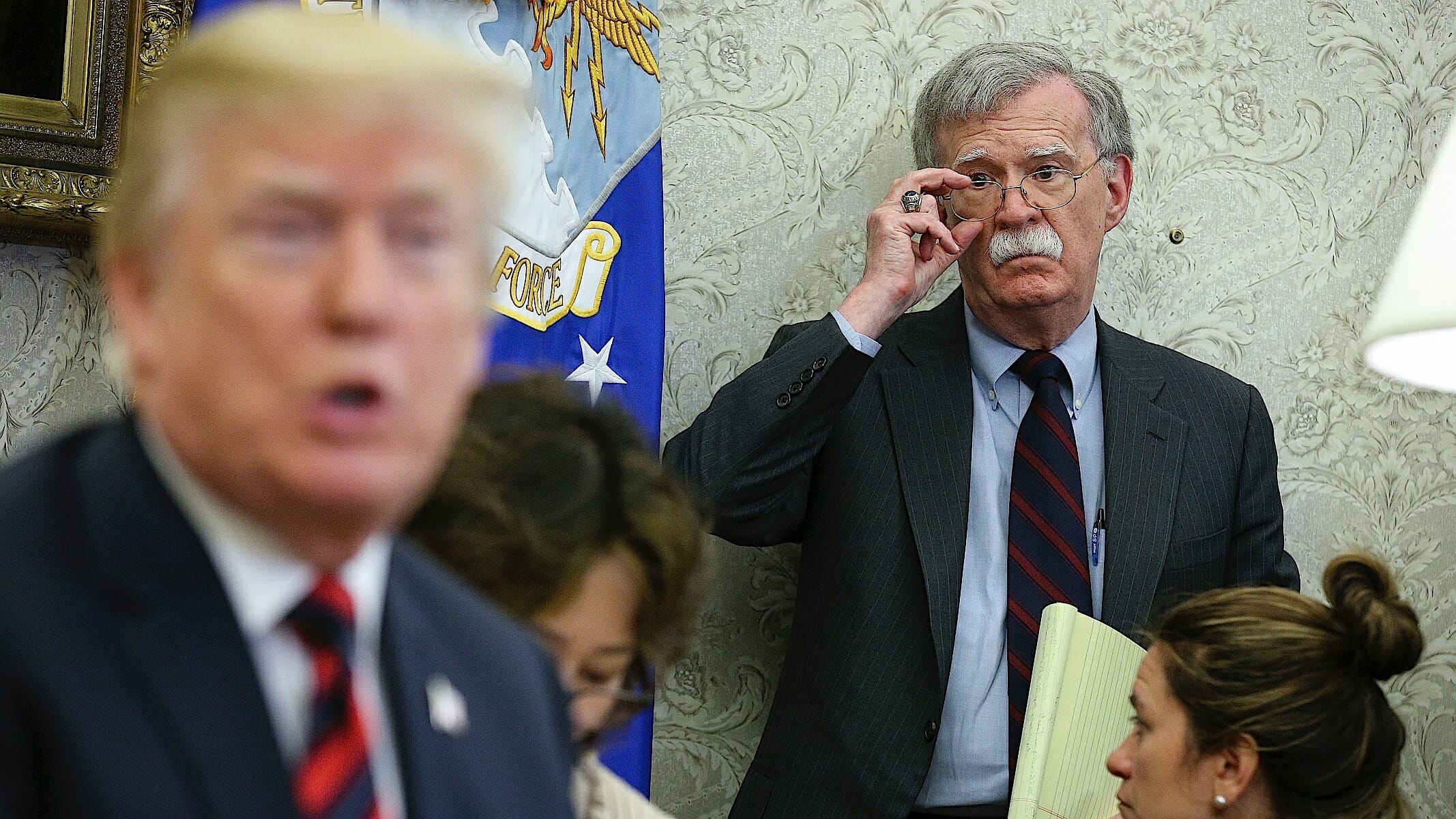War with Iran Looks More Inevitable by the Day, and There’s Nobody to Blame but the Trump White House
Photo courtesy of Getty Pool
I’m starting to wonder if war with Iran was a foregone conclusion the minute President Trump dropped out of the Joint Comprehensive Plan of Action—the Iran Nuclear Deal—in May 2018. A piece today in the NYTimes nicely describes the conundrum Iran faced starting at that moment:
Mr. Trump pulled out of the 2015 pact last year, saying that it was not tough enough on Iran. In doing so, he put intense strain on the international coalition that had backed the agreement and wanted to keep it alive. And he left Iran trapped between continuing to abide by the deal’s provisions without getting any of its benefits or abandoning it and provoking a more intense conflict with the United States.
In a strange way, it’s almost worse that Obama and U.S. allies forged the deal in the first place, because it gave Trump something to undo, and a cudgel with which to hit Iran—an action that would ultimately demand a reaction. Of course, maybe he didn’t need it at all—the economic sanctions he’s levied on our soon-to-be enemies pushed everything closer to war—but it was certainly a convenient place to begin.
And now, finally, we’re seeing the reaction. Iran possibly struck Japanese oil tankers with explosives in the Gulf of Oman (they deny it, and accuse the U.S. of a false flag action), and they’ve announced that they’ll be in violation the terms of the JCPOA by producing more low-enriched uranium than the deal allows in a matter of days. That gave Trump, and his chief war hawks John Bolton and Mike Pompeo, all the permission they needed for their next reaction. Per the Times:
Tensions between the United States and Iran flared on Monday as Tehran said it would soon breach a key element of the 2015 international pact limiting its nuclear program, while President Trump ordered another 1,000 troops to the Middle East and vowed again that Iran would not be allowed to develop a nuclear weapon.
So there you have it—escalation upon escalation, and it all started with Trump pulling out of the deal for no reason aside from the fact that it wasn’t “tough enough” on Iran. Media outlets, especially mainstream American ones, have been very good over the past 48 hours of noting that Iran will “violate” the deal imminently with its uranium production, but very bad at noting the U.S. withdrawal and subsequent sanctions, which make a mockery of the deal and, indeed, a mockery of the idea that the deal could be “violated” in any way.
-

-

-

-

-

-

-

-

-

-

-

-

-

-

-

-

-

-

-

-

-

-

-

-

-

-

-

-

-

-

-

-

-

-

-

-

-

-

-

-








































